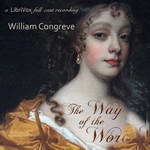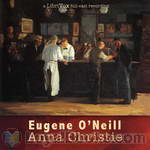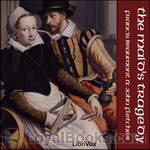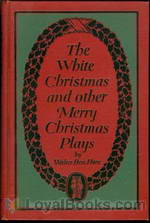|
Books Should Be Free Loyal Books Free Public Domain Audiobooks & eBook Downloads |
|
|
Books Should Be Free Loyal Books Free Public Domain Audiobooks & eBook Downloads |
|
Plays |
|---|
|
Book type:
Sort by:
View by:
|
By: John M. Synge (1871-1909) | |
|---|---|
 Deirdre of the Sorrows
Deirdre of the Sorrows
| |
 The Well of the Saints
The Well of the Saints
| |
By: Annie F. Johnston (1863-1931) | |
|---|---|
 The Rescue of the Princess Winsome A Fairy Play for Old and Young
The Rescue of the Princess Winsome A Fairy Play for Old and Young
| |
By: Juliana Horatia Gatty Ewing (1841-1885) | |
|---|---|
 The Peace Egg and Other tales
The Peace Egg and Other tales
| |
By: Bjørnstjerne Bjørnson (1832-1910) | |
|---|---|
 Three Dramas
Three Dramas
| |
By: William Congreve (1670 -1729) | |
|---|---|
 The Way of the World
The Way of the World
The Way of the World is a play written by British playwright William Congreve. It premiered in 1700 in the theatre in Lincoln's Inn Fields in London. It is widely regarded as being one of the best Restoration comedies written and is still performed sporadically to this day.The play is based around the two lovers Mirabell and Millamant (originally famously played by John Verbruggen and Anne Bracegirdle). In order for the two to get married and receive Millamant's full dowry, Mirabell must receive the blessing of Millamant's aunt, Lady Wishfort... | |
By: Eugene O'Neill | |
|---|---|
 Anna Christie
Anna Christie
Eugene O'Neill's drama Anna Christie was first produced on Broadway in 1921 and received the Pulitzer Prize in 1922. It focuses on three main characters: Chris Christopherson, a Swedish captain of a coal barge and longtime seaman, his daughter Anna, who has grown up separated from her father on a Minnesota farm, and Mat Burke, an Irish stoker who works on steamships. At the beginning of the play Chris and Anna are reunited after fifteen years apart. Anna comes to live on her father's coal barge, but hides the secret of her past from him. When she meets Mat after an accident in the fog, they almost immediately fall in love - but Anna finds that forging a new future will not be easy. | |
 The Hairy Ape
The Hairy Ape
| |
 The Atlantic Book of Modern Plays
The Atlantic Book of Modern Plays
| |
 The First Man
The First Man
| |
 The Straw
The Straw
| |
By: William Carew Hazlitt (1834-1913) | |
|---|---|
 A Select Collection of Old English Plays, Volume 1
A Select Collection of Old English Plays, Volume 1
| |
By: John Fletcher (1579-1625) | |
|---|---|
 The Little French Lawyer A Comedy
The Little French Lawyer A Comedy
| |
By: Alfred John Church (1829-1912) | |
|---|---|
 Stories from the Greek Tragedians
Stories from the Greek Tragedians
| |
By: Mary Eleanor Wilkins Freeman (1852-1930) | |
|---|---|
 Giles Corey, Yeoman A Play
Giles Corey, Yeoman A Play
| |
By: Frank Wedekind (1864-1918) | |
|---|---|
 Pandora's Box
Pandora's Box
| |
 Earth Spirit
Earth Spirit
Earth Spirit (1895) (Erdgeist) is a play by the German dramatist Frank Wedekind. It forms the first part of his pairing of 'Lulu' plays (the second is Pandora's Box [1904]), both of which depict a society "riven by the demands of lust and greed". Together with Pandora's Box, Wedekind's play formed the basis for the silent film Pandora's Box (1929) starring Louise Brooks and the opera Lulu by Alban Berg in 1935 (premiered posthumously in 1937). The eponymous "earth spirit" of this play is Lulu, who Wedekind described as a woman "created to stir up great disaster... | |
By: George Farquhar (1677-1707) | |
|---|---|
 Recruiting Officer
Recruiting Officer
| |
By: Florence Holbrook (1860-1932) | |
|---|---|
 Dramatic Reader for Lower Grades
Dramatic Reader for Lower Grades
Despite the title's bland sounding name, this book is a charming collection of 16 plays for children. These little plays—well-known stories done into dialogue—were written for children who like to imagine themselves living with their favorite characters in forest, in palace, or in fairyland. Included are Cinderella, Robin Hood, William Tell, Hansel and Gretel and many more. | |
By: Thomas Kyd (1558-1594) | |
|---|---|
 The Spanish Tragedie
The Spanish Tragedie
| |
By: Thomas Dixon (1864-1946) | |
|---|---|
 A Man of the People A Drama of Abraham Lincoln
A Man of the People A Drama of Abraham Lincoln
| |
By: Frank Sidgwick (1879-1939) | |
|---|---|
 The Sources and Analogues of 'A Midsummer-night's Dream'
The Sources and Analogues of 'A Midsummer-night's Dream'
| |
By: Zora Neale Hurston (1901?-1960) | |
|---|---|
 The Mule-Bone: A Comedy of Negro Life in Three Acts
The Mule-Bone: A Comedy of Negro Life in Three Acts
| |
 Three Plays Lawing and Jawing; Forty Yards; Woofing
Three Plays Lawing and Jawing; Forty Yards; Woofing
| |
 De Turkey and De Law A Comedy in Three Acts
De Turkey and De Law A Comedy in Three Acts
| |
By: Francis Beaumont (1584-1616) | |
|---|---|
 The Maid's Tragedy
The Maid's Tragedy
Beaumont and Fletcher's The Maid's Tragedy (first published 1619) is a sensational Jacobean sex tragedy. When gentleman soldier Melantius returns to Rhodes, he finds his dear friend Amintor is recently married - but not to his troth-plight love Aspatia (the maid of the title). Instead, the King has arranged a match between Amintor and Melantius' sister, the beautiful Evadne. On his wedding night, Amintor finds that his new wife has married him under false pretenses - and this unleashes a torrent of dire consequences, sexual, emotional, and ultimately political. | |
By: Sophie May (1833-1906) | |
|---|---|
 Prudy Keeping House
Prudy Keeping House
| |
By: Paul Carus (1852-1919) | |
|---|---|
 The Buddha A Drama in Five Acts and Four Interludes
The Buddha A Drama in Five Acts and Four Interludes
| |
By: Walter Ben Hare (1880-1950) | |
|---|---|
 The White Christmas and other Merry Christmas Plays
The White Christmas and other Merry Christmas Plays
| |
By: William Ernest Henley (1849-1903) | |
|---|---|
 Plays of William E. Henley and R.L. Stevenson
Plays of William E. Henley and R.L. Stevenson
| |
By: Mary Hunter Austin (1868-1934) | |
|---|---|
 The Arrow-Maker A Drama in Three Acts
The Arrow-Maker A Drama in Three Acts
| |
By: Edward Young (1683-1765) | |
|---|---|
 The Revenge A Tragedy
The Revenge A Tragedy
| |